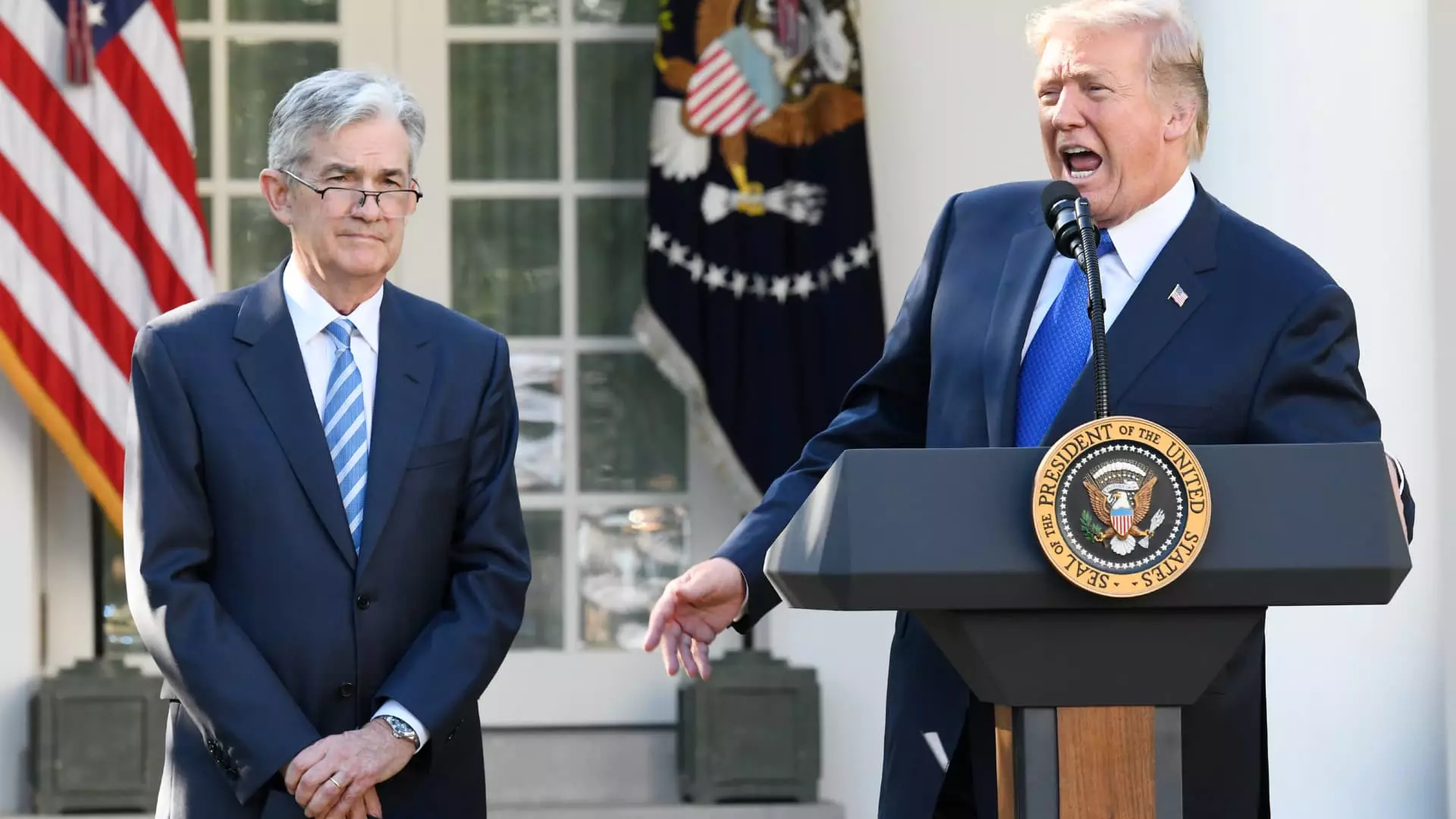In a recent outburst, former President Donald Trump has continued his relentless campaign against Federal Reserve Chairman Jerome Powell, vocally demanding a dramatic one-percentage-point cut in interest rates. This appeal comes even as a surprisingly strong jobs report was released, indicating that the U.S. economy is performing better than many analysts anticipated. In a world where economic indicators often serve as a beacon for policy modifications, Trump’s insistence on a radical rate cut highlights a disturbing disconnect with economic reality—a concern worth scrutinizing.
Trump’s proclamation on his Truth Social platform—calling for a “full point, Rocket Fuel!” cut—doesn’t just demonstrate his usual bravado; it starkly illustrates his misunderstanding of economic mechanics. For a president who often boasted about a burgeoning economic landscape during his term, one might wonder why there is a perceived need for such aggressive measures. The robust addition of 139,000 jobs in May, successfully exceeding Dow Jones’ predictions, begs the question: Is the push for a rate cut a political maneuver designed to further inflate his legacy, or is it genuinely rooted in economic foresight?
Inflationary Concerns and Tariff Implications
Trump’s calls for lower interest rates do not exist in a vacuum; they are intricately linked to his administration’s own tariff policies. As trade wars escalate, economists have consistently warned that these policies can trigger inflationary pressures that could undermine economic growth. Trump’s complaints about the Federal Reserve sticking to its guns, contrasted with the actions of other central banks like the European Central Bank (ECB), showcase a rather selective reading of global economic dynamics.
What he fails to acknowledge is the wisdom behind maintaining higher interest rates: they serve as a bulwark against potential inflation spirals. Trump belongs to a camp that seems to disregard this essential principle. The ECB’s recent quarter-point cut—to its eighth reduction within a year—signals a careful balance of risk management for an economy facing weakening growth. Meanwhile, Trump’s insistence on cuts can be perceived as simplistic, encapsulating a dangerous short-termist mentality that ignores long-term economic stability.
Market Reactions vs. Trump’s Rhetoric
Despite Trump’s fervent push for aggressive rate cuts, the market appears sharply unconvinced. Following the job report, traders adjusted their expectations, significantly diminishing the likelihood of any cuts being announced in the Federal Open Market Committee’s upcoming meeting. Just days prior, expectations were favoring a reduction by September, which has now plummeted. This is not simply a matter of market mechanics; it signifies a broader consensus on the fundamental health of the economy, which contradicts the former president’s erroneous narrative.
Trump’s dwindling political capital has left him vulnerable to framing narratives that serve his interests rather than those of the economy at large. This alignment with populist sentiment, wherein cuts seem inherently beneficial, masks the complexities involved in effective monetary policy. The recent jobs report serves as a reminder that the employment landscape is not as dire as Trump projects; thus, the urgency for steep cuts vanishes under the weight of data.
Personal Vendettas in the Economic Arena
One can’t discuss Trump’s incessant criticisms of Powell without recognizing the personal vendettas that often accompany his public statements. Describing Powell as “Too Late” and a “disaster” underscores a concerning trend where economic decisions become intertwined with personal animosity. Rather than a thoughtful engagement with the nuances of monetary policy, Trump’s rhetoric devolves into mere insults that undermine the legitimacy of the Federal Reserve’s mandate.
Notably, Trump’s contention that Powell is “costing our Country a fortune” seems remarkably disingenuous given his own administration’s fiscal policies. It raises a critical point: Is he pandering to his base by obscuring the realities of the macroeconomic landscape? By shouting for rate cuts without acknowledging the context in which these decisions are made, Trump positions himself as a populist demagogue—one whose public grasp of economics appears superficial at best.
While the need for responsive economic measures is undeniable, the proposals must resonate with sound logic and fiscal responsibility. Trump’s fixation on radical interest rate cuts—paired with a penchant for personal attacks—represents an approach that is more divisive than constructive. In the long run, these tactics could set the stage for detrimental consequences that reverberate throughout the economy, making it clear that emotional outbursts might not be the best roadmap for successful governance.


Leave a Reply